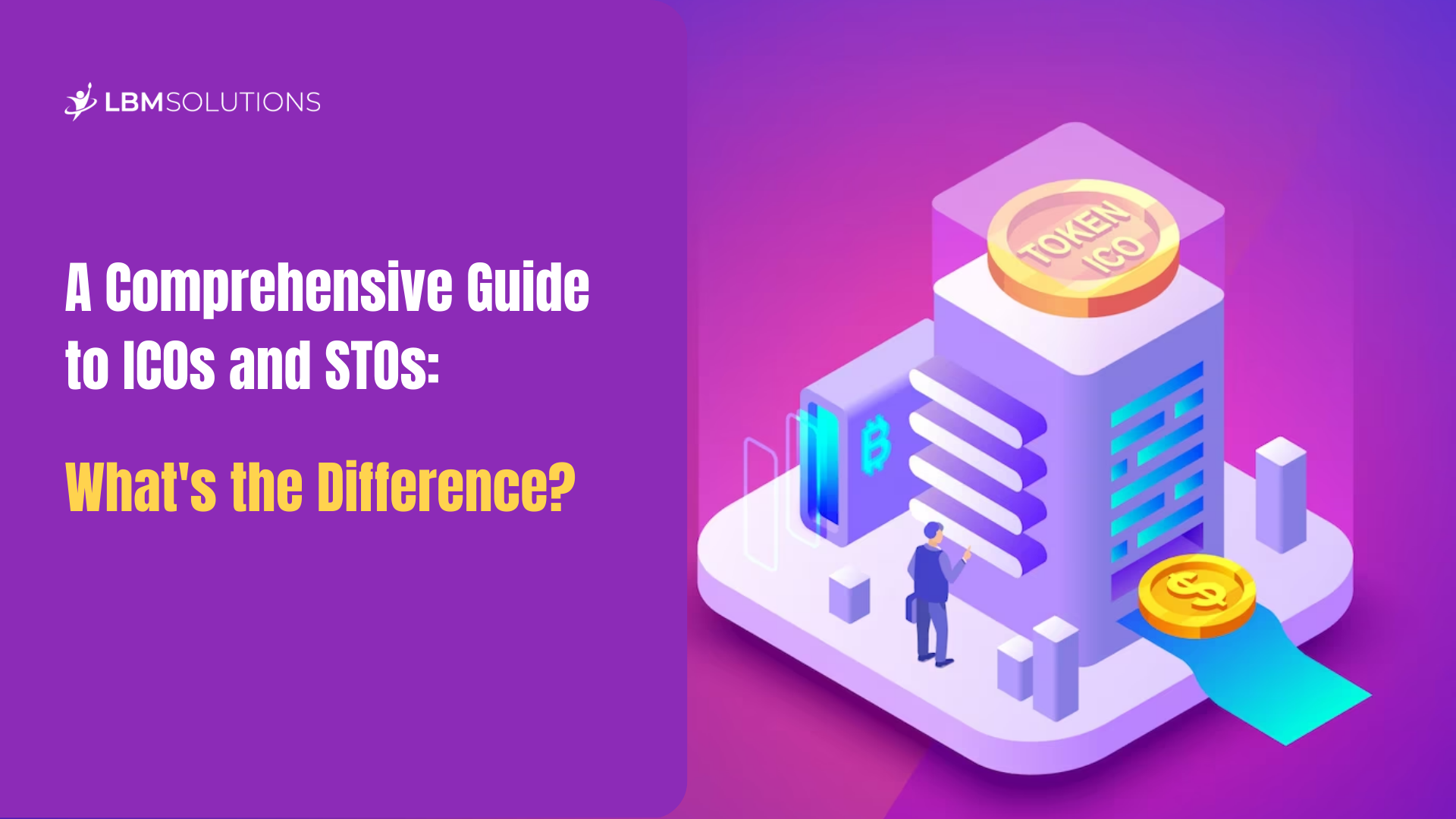In recent years, the world of finance has seen an explosion of new funding options for startups and other companies. Two of the most popular are initial coin offerings (ICOs) and security token offerings (STOs). Both of these options are based on blockchain technology and offer new ways for companies to raise funds, but there are some key differences between them. In this blog post, we’ll take a closer look at what ICOs and STOs are, and how they differ from each other. And do you need an ICO development company to develop your ICO?
What is an ICO?
An initial coin offering (ICO) is a fundraising method used by startups and other companies that allows them to issue digital tokens or coins to investors in exchange for funding. These tokens or coins can then be used within the company’s ecosystem, traded on cryptocurrency exchanges, or sold for a profit. ICOs exploded in popularity in 2017 and early 2018, with many startups using them as a way to raise large amounts of capital quickly.
One of the key features of ICOs is that they are not regulated by any government body, say experts at an ICO development company. This lack of regulation has led to some controversy, as many ICOs have turned out to be scams or have failed to deliver on their promises. However, the lack of regulation also means that companies can use ICOs to raise funds without having to go through traditional fundraising channels, such as venture capital firms or angel investors.
What is an STO?
A security token offering (STO) is similar to an ICO in that it allows companies to raise funds by issuing digital tokens. However, the main difference is that these tokens are classified as securities, and are subject to regulation by the Securities and Exchange Commission (SEC) in the United States and similar regulatory bodies in other countries.
Because STOs are subject to regulation, they offer a higher level of investor protection than ICOs, say experts at an ICO development company. Companies must follow strict guidelines when conducting an STO, including providing detailed information about their business, financials, and the terms of the offering. Investors must also meet certain eligibility requirements, such as being accredited investors, which helps to ensure that only qualified investors participate in the offering.
ICOs vs. STOs: What’s the Difference?
Now that we’ve looked at what ICOs and STOs are, let’s take a closer look at some of the key differences between the two.
Regulation
As mentioned earlier, the main difference between ICOs and STOs is that STOs are subject to regulation by government bodies, while ICOs are not. This means that companies must follow strict guidelines when conducting an STO, including providing detailed information about their business and the terms of the offering. According to a leading ICO development company, investors must also meet certain eligibility requirements, such as being accredited investors, which helps to ensure that only qualified investors participate in the offering. In contrast, ICOs are not subject to regulation, which has led to some controversy and uncertainty about their legitimacy.
Investor Protection
Because STOs are subject to regulation, they offer a higher level of investor protection than ICOs. Companies must provide detailed information about their business and the terms of the offering, which allows investors to make informed decisions about whether or not to invest. Additionally, because only accredited investors can participate in an STO, there is a higher level of scrutiny over who is investing and whether they are qualified to do so.
In contrast, ICOs do not offer the same level of investor protection. Because they are not subject to regulation, companies can make claims that are not necessarily accurate or transparent, which can lead to investors losing money. According to an ICO development company, additionally, because anyone can invest in an ICO, there is a higher risk of fraud and scams.
Legal Status
ICOs are often viewed as a form of crowdfunding, while STOs are considered to be securities offerings, says professionals at an ICO development company. This means that STOs are subject to securities laws and regulations, such as the Securities Act of 1933 and the Securities Exchange Act of 1934, which provide certain protections to investors.
Token Characteristics
ICO tokens are often designed to be used as a medium of exchange or as a form of payment for goods and services, while STO tokens are backed by real-world assets and are designed to represent ownership of those assets.
Market Maturity
ICOs are often associated with high volatility and speculative trading, while STOs are designed to be more stable and less volatile, with trading restricted to qualified investors.
In conclusion, while ICOs and STOs are both methods of raising funds through the sale of digital tokens, they differ significantly in terms of their legal status, investor protection, regulatory compliance, and market maturity. STOs are generally considered to be a more regulated and transparent form of fundraising, while ICOs are associated with higher risk and volatility, says professionals at an ICO development company. As always, investors should carefully research and consider the risks and benefits of any investment opportunity before investing their money.
Apart from this, always consult a legit ICO development company whenever you are thinking of developing your own ICO, this will save you time and money.











